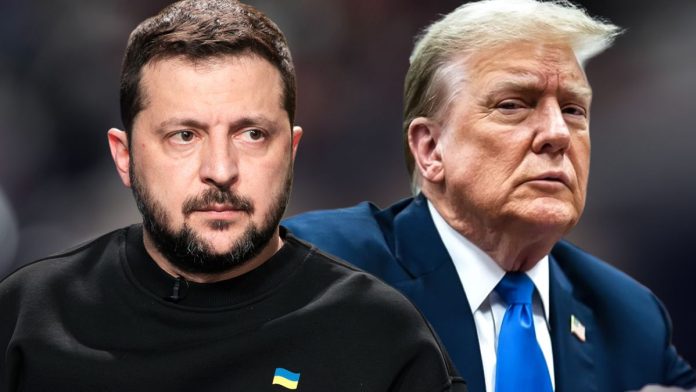The European media is paying attention to the possibility that the newly elected US President Donald Trump can begin negotiations with Vladimir Putin on Ukraine without the participation of the European Union (EU) and Kiev. This causes significant fears among European leaders who have long been seeking to be at the table of negotiations in the issue of the Ukrainian crisis. Can the US take the role of a mediator without the participation of Europe, and how will it affect the situation in Ukraine?
The European Union, as one of the main partners of Ukraine, actively advocates for its key role in peace talks. France, Germany and Poland's leaders are concerned about the prospect of negotiations between the US and Russia can limit Europe's participation and lead to agreements without EU interests. This can significantly reduce Europe's impact on global policy, including security and stability on the European continent. Trump's rapid peace agreements have become more realistic, and many Europeans are afraid that this can minimize their impact on peaceful settlement policy, especially in the case of unilateral agreements between the United States and Russia.
Equally important is the issue of Ukraine's participation in potential negotiations. President Volodymyr Zelenskyy has repeatedly emphasized that Ukraine is not ready for rapid peace agreements, requiring NATO security guarantees. Meanwhile, Trump is willing to take the initiative, but his strategy remains uncertain. On the one hand, for the United States it can be profitable to support Ukraine as a pressure lever of pressure on Russia, and on the other, the situation where negotiations are conducted without the participation of Kiev is not excluded. Political scientist Oleg Posternak believes that in the case of a rapid end of the war, Trump can build a policy that will allow him to reach an understanding with Putin, even without Ukraine's participation. This may be advantageous from the point of view of international geopolitics, but according to experts, such development will not necessarily be in favor of Ukraine. If negotiations really happen without the participation of Europe, it can be a serious challenge for the European Union, which in recent years has tried to assert its political subjectivity in defense issues. The EU, as the main donor and strategic partner of Ukraine, should consider the possibility of strengthening its security strategy in order not to be aside from important global processes. There is also a danger that direct intervention of the US and Russia can lead to a decline in a common Western strategy and cause additional economic and security challenges for the EU. At the same time, Europe should strive to avoid antagonism between the US, Ukraine and the European Union in order not to create additional geopolitical stresses.
Ukraine, trying to strengthen its position on the battlefield before the new US administration arrives, will try to support international partners to increase pressure on Russia. Therefore, even if the negotiations between the US and Russia are held without Europe, Kiev has a clear goal - not to reduce its role in the process of peaceful settlement. Meanwhile, Trump can take advantage of direct negotiations with Putin as a lever of influence to provide more beneficial terms for the United States and the West of peace agreements. However, it is important for Ukraine not only to be part of these negotiations, but also to have guarantees of its security and support from international partners, especially in the context of potential NATO enlargement
Donald Trump's decision to negotiate with Putin without EU and Ukraine will have serious consequences for the geopolitical situation in Europe and Ukraine. The European Union risks losing its impact on important negotiations, and Ukraine is to stay away from important decisions about its future. Trump's position is likely to be determined not only by his internal policy, but also by global geopolitical calculations.


